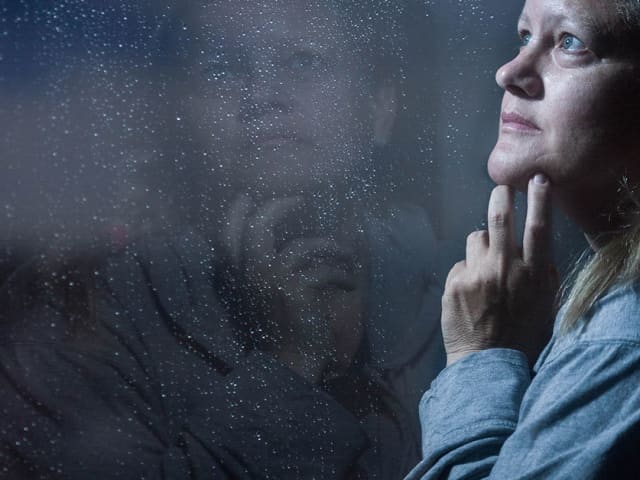Hot flashes, mood disorders, bathroom visits: Find out how to handle them for better quality sleep.
For many women, menopause becomes the ultimate sleep challenge.
That loss of sleep can leave you feeling fatigued, confused and mighty irritable the next day, raising your risk of injuries and certain health conditions like high blood pressure, heart disease, diabetes, and even obesity, according to the Mayo Clinic.
In his book, Sleep for Success, James Maas reports that 66 percent of women around menopause complain of difficulty falling asleep and staying asleep. But there are some things women can do to help themselves sleep better.
HOT FLASHES
During sleep, hot flashes can create intense sweating, known as night sweats.
While they decline over time, they can linger for 10 years or more—although on the average, they last for three to five years, according to the North American Menopause Society.
To Sleep Better: Your temperature may be rising, but dressing light in moisture-wicking fabrics can help you beat the heat. Dressing in layers may be an option for women whose body temperature unpredictably fluctuates, says Harvard Health Publications. Keeping your bedroom cool (between 65 and 68 degrees F.) and well-ventilated can go a long way toward keeping your cool during that sudden heat surge. Another tip: Become buddies with bedding that breathes, like True TempTM bedding.
MOOD DISORDERS
Your frayed nerves can easily lead to insomnia, and it's not uncommon during menopause to suffer from mood disorders, especially depression and anxiety, as reported in a study published in the Journal of Clinical Sleep Medicine.
To Sleep Better: Before bed, relax and unwind with some yoga or meditation. Or ask your partner for a massage, which can be a nice sleep-enhancer. A small study in the Journal of Holistic Nursing found that just three minutes of a slow back massage helped women get an extra 36 minutes of sleep compared to women who didn't get the hand's-on treatment. Hormone replacement therapy has also been used to treat insomnia in menopausal women.
BATHROOM VISITS
Women might wake up to use the bathroom more frequently, especially during menopause, according to the Cleveland Clinic. Nocturia, which becomes more common with aging and menopause, makes it difficult to have a normal sleep cycle, notes the clinic.
To Sleep Better: Empty your bladder before you turn in for the night. In the evening, limit your consumption of liquids, especially alcohol, coffee and any other caffeinated beverages.
With these tips, menopause may not have to mean saying goodbye to a good night's sleep.
Want even better sleep? Sleepers who routinely use their Sleep Number 360® smart bed features and SleepIQ® technology get almost 100 hours more proven quality sleep per year.*
Like diet and exercise, quality sleep has a profound impact on our physical, emotional and mental wellbeing. Because no two people sleep the same, Sleep Number 360® smart beds, with SleepIQ® technology, sense your movements and automatically adjust firmness, comfort and support to keep you both sleeping comfortably and provide proven quality sleep. Find your Sleep Number® setting for your best possible night's sleep, and if you own a Sleep Number® bed, log in to your InnerCircle℠ Rewards account to see your exclusive offers, refer friends and more.
*Based on internal analysis of sleep sessions assessing sleepers who use multiple features of Sleep Number® products. Claim based on sleepers achieving over 15 more minutes of restful sleep per sleep sessions.
